The inventive use of light does justice to the cult of the sun. Helios will be satisfied with this Eliogabalo, a co-production of the Dutch National Opera with the Opéra National de Paris. History only sees him with the greatest possible contempt. The stories about him are surrounded by accolades baptized in sulfur. Varius Avitus Bassianus - a 14-year-old high priest of the Syrian sun god Elagabal won the throne of the Roman Empire in the third century A.D. As Heliogabalus (Eliogabalo) he turned his reign in such an scandalous outrage that he was murdered by his own body guards, after just three years in office. Historians throughout the ages have been united to condemn this embodiment of sin and misconduct in the most terrible kind of words. With "... the most cruel and infamous wretch that ever disgraced humanity and polluted a throne ..." (the 19th-century American historian S. W. Stevenson) and the unsurpassed "Not only the filthiest of all who walk on two legs but even of all who walk on four legs" (Historia Augusta, a Roman collection of fourth-century imperial biographies) Eliogabalo defies all description and triggers the imagination. No wonder that this rotten apple of a human being is endowed with books, a movie and an opera. After Ercole Amante in 2009, the composer Francesco Cavalli returns with Eliogabalo to the Muziektheater in Amsterdam. Considering the outracious material that a theater-maker can draw from when it comes to a piece about Eliogabalo, Cavalli's opera plays it rather safe. Yet the original opera was rejected by his patrons and it had to wait more than 300 years for his world premiere (which it eventually got in 1999 in Crema, the birthplace of Cavalli). This rejection was probably due to the time and place of conception (Venice in the 17th century where Jesuits had a severe influence on social and cultural life). The obvious associations with nepotism, the abundant presence of prostitution and the murder of an emperor were all just a little too much for the establishment of Venice at the time. ... the most cruel and infamous wretch that ever disgraced humanity and polluted a throne ... Central to the opera are not the (supposed) excesses and atrocities of Eliogabalo, but the relationships between the love pairs Alessandro (the cousin of Eliogablo) and Flavia Gemmira (the woman Eliogabalo wants for himself) and Giuliano and Eritea. The opera may have stripped Eliogabalo from the majority of the excesses that are attributed to him, his opera version is nevertheless a wretched human being. Right at the beginning of the opera he violates Eritea and when Alessandro asks for permission to marry Gemmirra, Eliogabalo agrees but immediately make plans to get rid of his cousin. The rivalry between the self-proclaimed sun king and his cousin stems from the love and lust they feel for the same woman. The libretto is not so interested in the possible political motives behind this rivalry. In this carnival of souls, the cult of the sun is beautifully served by the tasteful and inventive use of light (by Antoine Traver). Helios would be pleased by this production in which Thomas Jolly spices up the meagre story of the libretto with a few events taken from Eliogabalo's biography. Thomas Jolly already had some experience with royal dramas. He directed Shakespeare's Henry VI (all three parts in a 18-hour marathon performance!) and Richard III. For Eliogabalo he goes further back in time and broadens his horizon with his first opera production. As said, Jolly adds some elements from Eliogabalo's biography to his staging. Most likely apocryphal is the story about the banquet in which the sun child buried his guests in violets and other flowers, so that some of them actually choked to death, being unable to crawl out to the top. The scene inspired Lawrence Adema-Tadema to his most famous painting (The Roses of Heliogabalo) and Louis' Fantomas' Feuillade to his film 'The Roman Orgy'. Thomas Jolly adds the power flower, this rain of roses, (which is not mentioned in the libretto) to the banquet at the end of the second act in which Eliogabalo tries to poison his cousin Alessandro. (An attempt destined to fail because cousin-dear doesn't show up.) Most stories about Eliogabalo may well have been born of a somewhat overzealous fantasy, but it is save to say that the child emperor did everything he could to enrage the Roman establishment. Eliogabalo, who came from Syria, made the sun god Elagabal in Rome the centrepiece of all gods, even chief god Jupiter had to take a step back, and by violating the chastity of a Vestal Virgin (Eliogabalo asked her to marry him) he commited sacrilege. Above all that, he behaved rather campy - 'gender-neutral' to say it with a bit of nowadays flavor - and with his exotic dances in honor of Elagabal he distanced himself far too much from how a Roman emperor should behave. Eliogabalo awaited the ‘damnatio memoriae', a posthumously proclaimed curse by the Roman senate, in (dis)honor of his filthy memory. A year ago, this production of Cavalli's opera was premiered in Paris and, like then, the baton in Amsterdam is held by Leonardo García Alarcón (a researcher in the field of Baroque music, I already drowned most pleasantly in 'Il Diluvio' of Falvetti, a piece he saved from obscurity). And like in Paris, the leading role is sung by Argentine Franco Fagioli. Fagioli's countertenor sings the role of Eliogabalo - in which the spoiled child, the dilapidated army leader and the horny womanizer come together - with virile tone. He is a man without morality. In the epitome of Fagioli, he is a grown-up child in a candy store. In addition to this Eliogabalo, the Alessandro of Ed Lyon is the moral compass of this opera. Even after it turns out that Eliogabalo wants to kill him (in order to get Gemmirra in his bed), Alessandro remains loyal to his emperor. It is not until the end that Alessandro parts from his servility when he allows himself to be crowned as new emperor and he acquits the soldiers who have lynched Eliogabalo and his loyal accomplices Lenia and Zotico from persecution. His initial hesitation to let the murder of a rightful ruler go unpunished echoes the objection the censors had against the opera at the time. The murder of a king or emperor was a controversial topic (it went too much against God's plan). And until long after Cavalli, a royal murder would cause discomfort in the world of opera (about two centuries later Verdi had to relocate the story of 'Un Ballo in Maschera' from Sweden to America because a literal reference to a king’s slaying - the opera was based on the assassination of the Swedish king Gustaaf III - could not be staged). Eliogabalo, an opera from the early days of the genre, is small scaled. Chamber music kind in design. It was originally endowed with no more than 5 or 6 musicians. This production has transformed that small scale to the big stage of a modern opera house. The orchestra has been extended to about 30 musicians. The past is reflected in the staging by a small staircase that enters in the orchestral pit. The stairs, used as an extra stage left opportunity for the singers who mingle with the members of the orchestra, is a concertant element in a fully staged production. Led by the orchestra, Eliogabalo is a baroque procession - in steady pace and a transluctant, organic sound - in which historical instruments see their story accompinied by modern, spectacular images in the scenery of Thibaut Fack and the beautifully dressed singers by Gareth Pugh. After more than three centuries the music – with its baroque-styled features that are mirrored in the singers' acting – has not diminished in expressiveness. Along the long lines of recitatives, half-aria's and arias, the listener is drawn in the story that lasts for more than three hours. But length is a strength, it's like staring at a pendulum (something not unknown to devotees of Wagneroperas). It's like a tour in a world where you find yourself in the capable hands of reliable guides. It is not until the third act – where the story is entirely focused on the two love couples - that the attention drops. Before Eliogabalo ends up in the orchestral pit with a severed head (spoiler alert), the long arch of music and storyline loses its momentum. The recitatives get a little bit stuck in staccato and the possibilities to add something spicy from Eliogabalo's biography to the production seem to have faded. However, with an enthralling end, worthy of a Salome-staging and a convincing cast it does not keep this production away from a final judgement surrounded by accolades that, for this occasion, smells of flowers. Thomas Jolly adds the power flower, this rain of roses, (which is not mentioned in the libretto) to the banquet at the end of the second act in which Eliogabalo tries to poison his cousin Alessandro. I am the Sun, who is cold! World, world, world, heat me with your love, your worship, your passion..... And you [...] are the flowers ordered....? Yes? Are the flowers there above? Then drop them...... I think all this is so dirty...... I love a lot of celebrating, of drinking, of being crazy, but I always want to have it beautiful and wonderful for me, and see..... Bah! all this disgust makes me nausea, while my stomach is empty and my throat, wormwood bitter, yearning for a drunk..... Wine, wine, wine, wine! And then flowers, flowers, flowers..... Let the flowers rain on everything that is legion! Louis Couperus (The Mountain of Light - 1906) Dutch National Opera - Amsterdam
12 - 26 October 2017
0 Comments
Leave a Reply. |
TIMELINE
July 2024
|

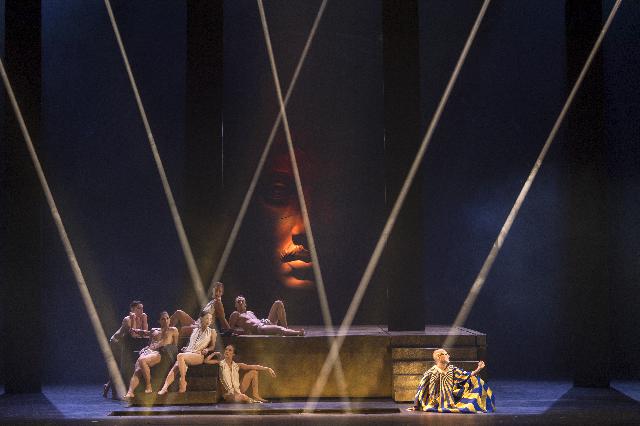
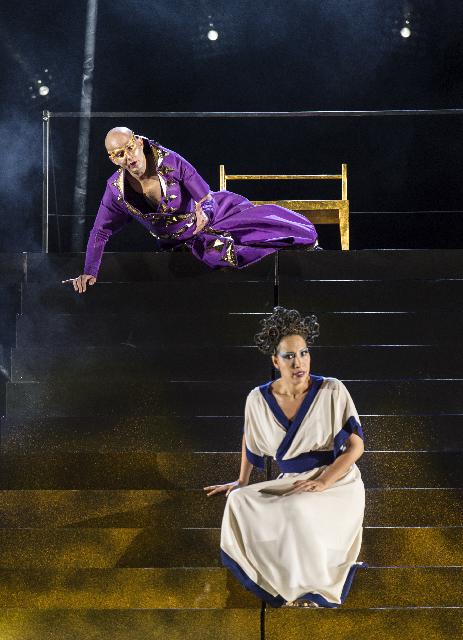
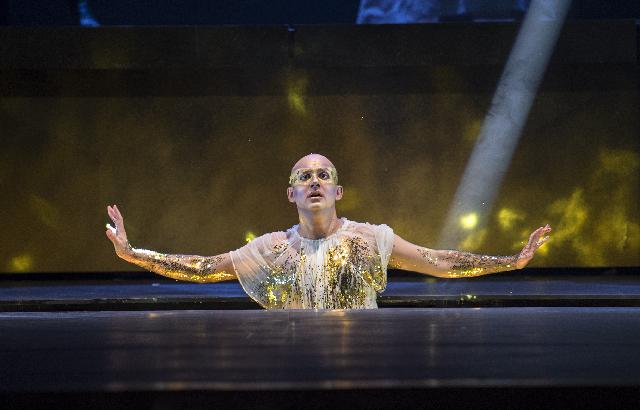
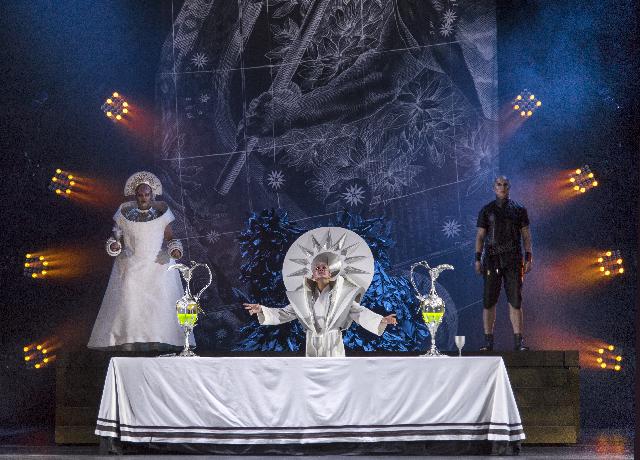
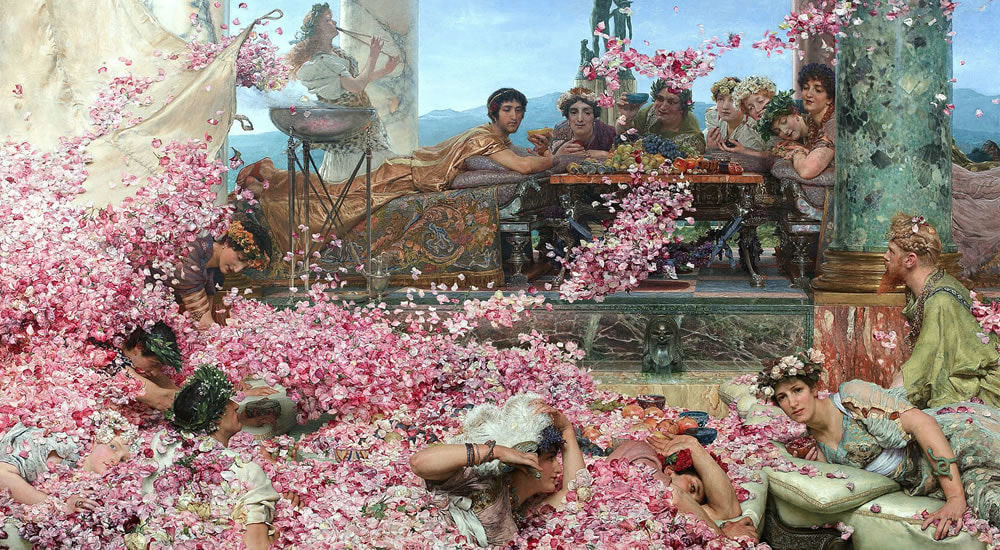
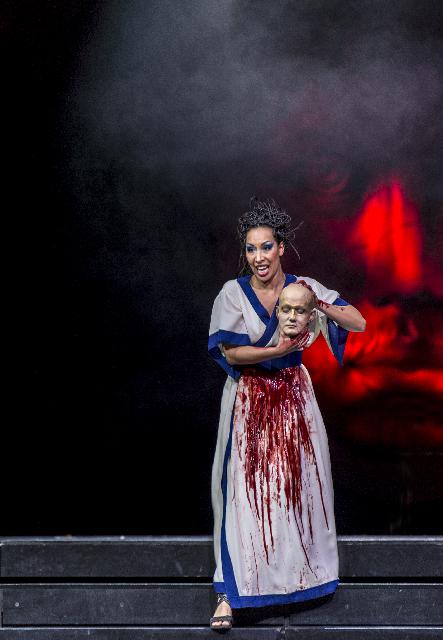
 RSS Feed
RSS Feed